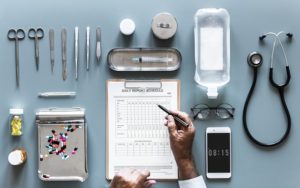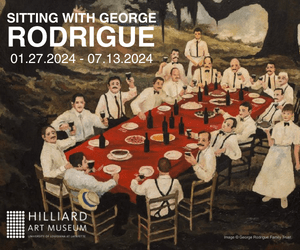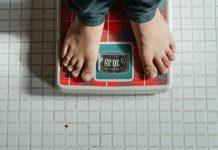My Journey with PCOS – A Hidden Hormonal Disorder
Disclaimer: This post is not written from a medical professional perspective. All information contained in this piece is a personal narrative of how I have come to understand PCOS and how it has affected me personally.
I have a hidden disorder, but it is a disorder that affects more women than you would think.
It’s caused a lot of internal distress, anxiety, and has sharply affected my self confidence throughout my growing adult years. It’s called PCOS – Poly Cystic Ovarian Syndrome – and for some reason there is no real fix or cure. They say it affects one in ten women, but I feel like I meet more and more women affected by this disorder every day. Essentially, it’s a hormonal imbalance that can cause any number of issues including infertility, type 2 diabetes, obesity, abnormal hair growth, acne, lack of periods, hair loss, depression, and even lead to endometrial cancer.
I knew something was off starting in high school.
I had only a hand full of periods from age 14-18, but I chalked it up to being a really active athlete and dancer. I also had a lot of hair on my face. An esthetician pointed it out when I had a facial and suggested that I may want to see someone about my hormones. I tried to cover it up by bleaching, but after an anonymous online bully messaged me on AIM and told me, “do all the boys a favor and shave the mustache,” I resorted to waxing. This was more than mortifying, but somehow I managed to go through high school seemingly unfazed by this event, and was actually fairly well liked and accomplished in the grand scheme of it all.
The side effects I experienced finally got a diagnosis.
I graduated high school, and finally had my first gynecology appointment. That’s when my lack of periods and abnormal hair  growth finally had a diagnosis and a name – Poly Cystic Ovarian Syndrome. An ultra sound revealed the tiny cysts that made a ring around my ovaries like a string of pearls. That didn’t sound so bad, but I then learned it could cause infertility in the long run and a host of other issues. I was prescribed birth control pills to ensure I had a monthly visitor and every other visit my blood was drawn to check the amount of glucose and cholesterol in my system. It was typically in check because I have always eaten healthy and made exercise a part of my routine, but I was now more certain to keep this going.
growth finally had a diagnosis and a name – Poly Cystic Ovarian Syndrome. An ultra sound revealed the tiny cysts that made a ring around my ovaries like a string of pearls. That didn’t sound so bad, but I then learned it could cause infertility in the long run and a host of other issues. I was prescribed birth control pills to ensure I had a monthly visitor and every other visit my blood was drawn to check the amount of glucose and cholesterol in my system. It was typically in check because I have always eaten healthy and made exercise a part of my routine, but I was now more certain to keep this going.
The birth control pills soon became too much for my system. The added hormones were making me extremely emotional and in the end, I am almost convinced caused a stint of clinical depression. Not to mention, the warning label on this particular one noted it could cause high blood pressure and blood clots. I switched to the NuvaRing which did not cause the crazy emotional rollercoaster or depression, but I did find my blood pressure starting to creep up.
When it was time for me to start a family, I got off the birth control and waited nervously for my body to fail me.
I assumed I would not be able to conceive on my own and would have to start fertility treatments. But lo and behold, I got pregnant on my own! I had luckily switched to a PCOS specialist and he immediately prescribed me progesterone as there would be a 50% chance I would miscarry (another side effect of PCOS is low progesterone which can lead women to miscarry). I started with progesterone shots in the behind which was a big fail because I literally was limping around for a week and couldn’t sleep on that side. I changed to a suppository, and then eventually moved to the oral progesterone.
I took progesterone my entire pregnancy, and ended up being induced for high blood pressure 11 days before my due date. I gave birth to a happy and healthy boy, but my fertility journey and struggle with PCOS continues. The post-partum hair growth on my neck and chin was again prevalent and knocking my self-confidence. Post birth, I hardly wore my hair up, but typically down to try and hide it. I have again begun the process of laser hair removal for the gazillionth time. Laser hair removal isn’t pleasant and it’s also expensive – even though it’s caused by a medical condition it’s considered cosmetic and not covered by insurance – I spend an ungodly amount of money simply trying to feel more like a woman and less, well hairy.
I have also learned more about the necessity of eating healthy and exercise.
 Refined carbohydrates and starchy and sugary foods cause insulin to rise in the body. Those with PCOS can be insulin resistant which means their body either tries to pump it out which produces more androgens and hormones such as testosterone or cannot do so which makes losing weight more difficult. It’s really important to avoid foods high on the glycemic index such as processed foods, starchy foods (especially processed ones), and food with added sugar. A focus on lean meats, vegetables, nuts, and anti-inflammatory foods should be the first line of defense when trying to fight the side effects and symptoms of PCOS.
Refined carbohydrates and starchy and sugary foods cause insulin to rise in the body. Those with PCOS can be insulin resistant which means their body either tries to pump it out which produces more androgens and hormones such as testosterone or cannot do so which makes losing weight more difficult. It’s really important to avoid foods high on the glycemic index such as processed foods, starchy foods (especially processed ones), and food with added sugar. A focus on lean meats, vegetables, nuts, and anti-inflammatory foods should be the first line of defense when trying to fight the side effects and symptoms of PCOS.
I’m still combatting and learning more about this hormonal disorder every day. I’m also hoping that modern medicine can find a better fix beyond prescribing birth control or metformin (which is a diabetes medication commonly prescribed). To the many who are affected by this hormonal disorder, you are not alone, I see you, keep your chin up, and keep seeking answers and asking questions. Perhaps one day there will be a better solution for us all.



















Thank you for your story, it is a parallel reflection of my story. I am a medical professional with PCOS and providers don’t listen to you. They don’t check hormone levels in women and they affect every part of your body from the top of your head to the bottom of your feet. However, providers are constantly wanting to check testosterone for men. Health care is sexist because from the provider perspective because it is dominated by men, that doesn’t care about female hormones. It is sad, that we struggle many times in silence with no solution in sight.